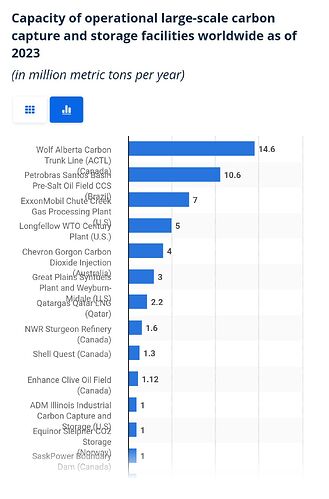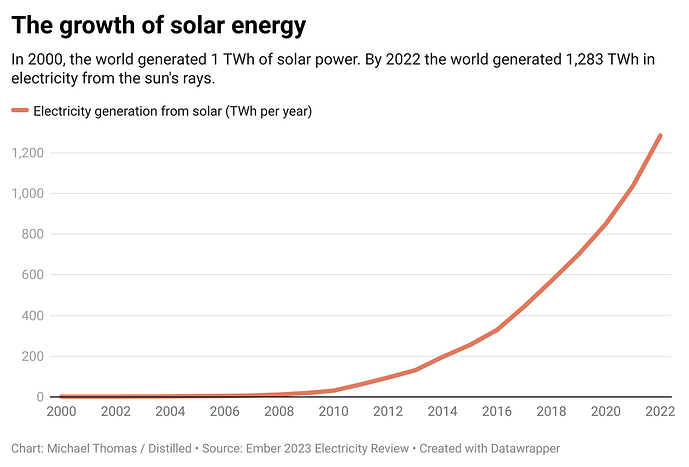This deserves a longer response.
Firstly, I don’t grant that CCS can sequester two percentages of global emissions. That is an easy number to throw out. But the scale of that is enormous.
I’ve heard numbers of carbon capture amounting to 1000th of a percent of emissions. I suspect that runs high and assumes and believes published best cases with no leakage, but let’s concede it. That would be only increasing by 2 thousand times? That seems not unreasonable.
But let’s dig a little deeper
The chart below shows the largest CCS in the world right now
What do we see?
It’s almost all oil. It’s enhanced recovery. And is an example of CCS advocates slight of hand (not yours). This stuff is enabling the increasing of emissions.
Where are the facilities that would actually reduce emissions? With storage that is stable and commerical? Do they exist? I know some are being built, slowly, at great expense, with billions of government support.
Which brings me to my second point
Cost of CCS is high, relative to two things.
- It’s higher than not sequestering.
- It’s higher than other abatement methods. Most notably solar and wind.
This means that it only happens with government intervention, AND if that intervention chooses the worse option.
So in the scenario (which won’t happen) of 2% of emissions going to CCS, that’s at the opportunity costs of 10 to 20% of other emissions not being abated. (And from a cost of abatement basis, that ratio is not an exaggeration)
Third. There’s the political aspect.
I want to divide FF companies into two here. There are those which can transition and survive. An energy retailer can make money selling electricity from solar the same as they do selling it from coal.
And there are those where this is an existential threat. Coal mines, the big oil players, gas networks etc.
That second group will never be part of the solution. They are actively working against the solution and have been for 40 years.
By entertaining CCS as part of the solution, we legitimise the FF players Which again, means that we trade that 2% for inaction in other areas, and are net worse off
If you are trying to stop smoking in a middle school. And Marlborough comes in and says they can run an advertisement campaign that will reduce kids smoking by 2% you tell them to fuck off, you don’t say “well it’s better than nothing”
So yeah.
- It won’t scale to 2%
- If it did that’s at a massive opportunity cost.
- If it did, it requires political legitimization of these companies that creates further losses



